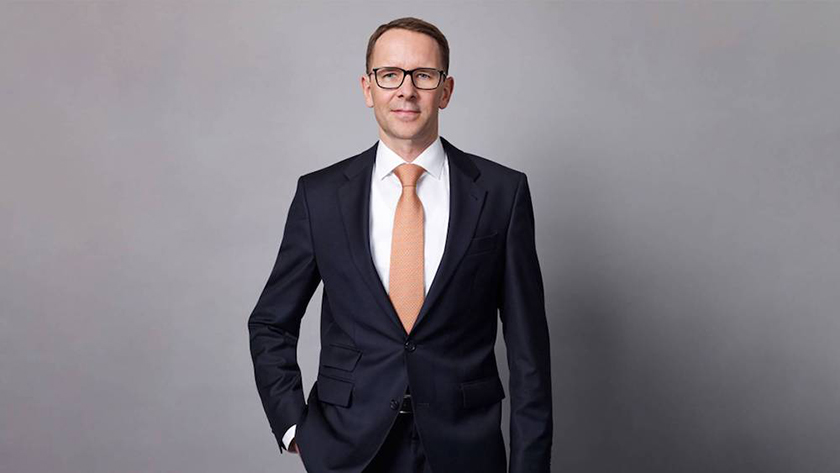More news
- Asian paint regulatory round up – Indonesian exterior paint still uses lead, warns W...
- Nigeria’s paint industry navigates regulatory changes and economic challenges amid p...
- Focus on the global coatings market: Global coatings market outlook
- Ask Joe Powder – October 2024
- Chinese paint majors look to domestic consumer sales as commercial real estate slumps

Wacker Chemie AG saw its sales and earnings decline in the second quarter of 2023 due to the persistently difficult market environment. The Munich-based chemical company generated sales of €1.75bn in the reporting quarter (Q2 2022: €2.17bn), down 19%. This decrease was chiefly due to lower selling prices and volumes. Exchange-rate effects also reduced sales. Compared with the preceding quarter (€1.74bn), however, sales were up 1%.
EBITDA (earnings before interest, taxes, depreciation and amortisation) totaled €256M in Q2 2023, down 59% yr-on-yr (€626M). The decline was due to lower volumes and prices as well as lower utilisation rates for some plants. Higher energy and raw material prices continued to have a negative effect as before. The Wacker Group’s reporting-quarter EBITDA margin was 14.6% (Q2 2022: 28.8%). The margin in the preceding quarter was 16.1%.
Against the backdrop of ongoing weak customer demand in many industries, continuing inventory reduction measures by customers and the lower year-over-year prices for many of its products, Wacker revised its forecast for 2023 on July 18. The company now expects sales of between €6.5bn and €6.8bn (previous guidance: between €7bn and €7.5bn). Full-year EBITDA for 2023 is expected to be between €800M and €1.0bn (previous guidance: between €1.1bn and €1.4bn).
“The pace of global economic growth has slowed significantly in recent months and Wacker has not been immune to this. In the first half of the year, we did not reach our strong prior-year figures in terms of Group sales and EBITDA,” said Group CEO Christian Hartel (pictured) on Thursday in Munich. Numerous market experts had originally been anticipating stronger demand in the second half of 2023, an assumption that was also reflected in Wacker’s forecast. However, Wacker, like so many other chemical companies, has yet to see a recovery.
“The majority of our customers in the chemical business continue to see demand stagnate. Despite a weak start to Q2, our solar business ended up recording higher volumes, but, at the same time, we are observing a fall in prices for solar-grade polysilicon in China. The earnings trend in our biotech business will be impacted once again this year by elevated investment spending in further growth. All our divisions are seeing high energy prices and inflation rates continue to slow their performance,” he added.
Hartel emphasised that Wacker, however, was well positioned in the medium and long term. “Our Strategy 2030 provides us with clear goals: faster growth, high profitability, and better resilience in times of constant change. Investment in our future growth plays an important role in achieving these goals,” Hartel said. The CEO emphasised that Wacker’s strategy remains clearly on track. “In the reporting quarter quarter we significantly boosted our investment spending on global expansion of our capacity compared with the previous year,” said Hartel.
The reporting quarter saw Wacker complete construction of a new spray dryer and a new dispersion reactor at the Group’s Nanjing site in China, for example. Production capacity in Nanjing has more than doubled as a result. The company also pressed ahead with the expansion of its biotech activities. In May, Wacker acquired ADL BioPharma, a contract manufacturer for the food, pharmaceuticals and consumer-goods industries, based in León, Spain. “This acquisition takes us one decisive step closer to meeting the growth objectives of our life sciences business,” added Hartel. “We are also investing in our polysilicon business, building a new production line at our Burghausen site for cleaning semiconductor-grade polysilicon. As the only European producer of hyperpure polysilicon, we are proud to be making an important contribution to strengthening Europe’s micro-electronics value chain through this project,” the CEO emphasised.
Regions
In the second quarter of 2023, Group sales fell in all regions primarily as a result of reduced volumes and lower prices. Sales in Asia decreased to €810M, around 14% lower than a year earlier (Q2 2022: €944M). Sales in the Americas totaled €268M, down 23% versus a year earlier (Q2 2022: €348M). Group sales in Europe amounted to €598M in the reporting quarter (Q2 2022: €767M), a decline of 22% compared with the prior year.



